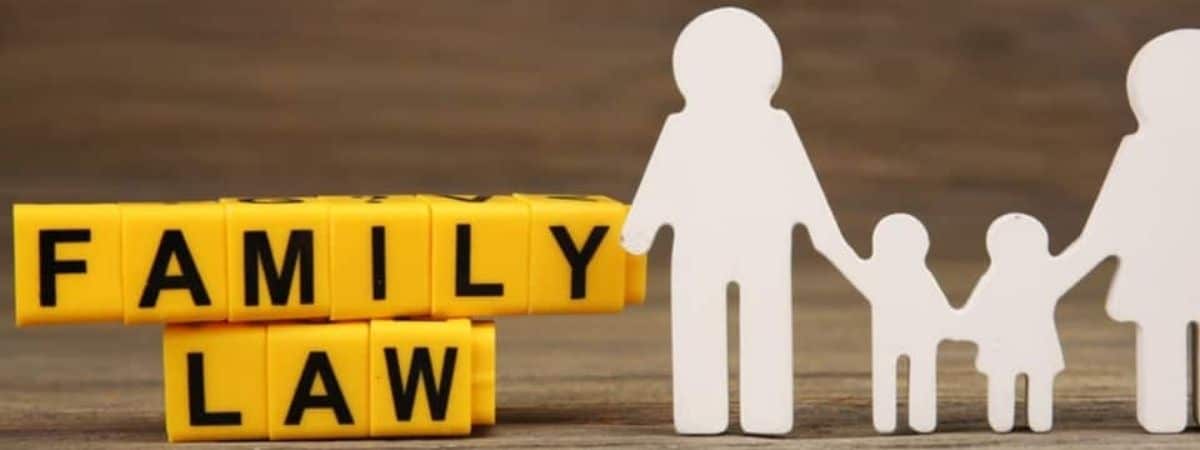
April 2024
Cohabitation Agreement in April 2024
When you are in a relationship, especially if you are living together, your estate becomes increasingly tied to your partner’s. While what will happen in the event your relationship ends is not the most enjoyable of topics for couples moving in together, it is certainly an important conversation. If you are starting to think about how you can protect your rights and plan for the future, you may want to consider a cohabitation agreement.
Topics that you will find covered on this page
You can listen to an audio recording of this page below.
What is a cohabitation agreement?
A cohabitation agreement for unmarried partners is where couples who live together but are unmarried set up an arrangement to protect their rights.
This can cover all sorts of things, like what share of the property each party is entitled to, what happens if the relationship ends, and who is responsible for paying bills or the mortgage.
What is a living together agreement?
This is another word for cohabitation agreement. Different terms are used by different solicitors, you may also see it called a no nup, living agreement or cohabitation contract.
Here is a short video on co-habitation agreements.
What happens when married couples get a divorce or a civil partnership is dissolved?
Both parties are entitled to maintenance and a share of the assets. The family court will decide what is a fair way to divide the assets, including what happens to the home the couple lived in.
What protection do cohabitants have in the event where the relationship comes to an end?
Partners who are cohabiting have weaker rights that married couples or civil partners. This means you may not be entitled to property you have lived in if it is not in joint names, and you will not be entitled to maintenance.
What happens if my partner died and we are not married?
Under trust law and family law, your rights and protection is more limited in the event that your partner dies and you are not married. This includes:
- You have no property rights to your partner’s assets where they are the owner
- You are not entitled to their estate, regardless of whether you have had children together
- You don’t get inheritance tax relief or access to your partner’s state pension like you would if you were married
If the relationship ends, who gets the property that we shared?
For joint tenants, the property will be divided half and half even if one person paid more initially. You can go to the courts to challenge this ownership, however this will be expensive and you could still lose.
What if only one person owns the home but we live in it together?
If you separate, and you are not tenants in common, the person with property title deeds will get to keep the home, even if you live together in the property.
You can go to the civil court to challenge the ownership and make a TOLATA claim against the person. This experience will be long and costly.
What will happen to joint bank accounts if me and a partner separate?
If you aren’t married or in a civil partnership, even if you stop being a couple both parties have equal claim to the assets in the account. This means that one person can withdraw the money as they please.
What will happen with money for my children if me and a partner separate?
While family law will allow you to make a financial claim against your ex partner to benefit your children, you have fewer options than families where the parents were married or in a civil partnership.

Do unmarried parents both have parental responsibility?
The mother will automatically have parental responsibility. The father will either need to be named on the birth certificate, enter an agreement with the mother, or apply to the court. Marriage means the father has parental responsibility.
What is included in a cohabitation agreement?
Cohabitation contracts can cover a variety of considerations for unmarried couples, including:
- Who in the couple pays what share of the rent or the mortgage
- Who gets what if the partners separate and what share they get, including property
- How you will look after your children
- Who will be the owner of your pets if the relationship breaks down
- What should be done with any debt or bank accounts you have together
- What happens with things like household bills while you are living together
- If you get life insurance on your partner’s behalf
- Entitlement to pensions
"A cohabitation agreement for unmarried partners is where couples who live together but are unmarried set up an arrangement to protect their rights."
Help & Advice Tweet
Why should you have a cohabitation agreement?
Many people think that if cohabitants live together with each other for long enough, they will have a common law marriage with the person, giving them all the same rights as married couples.
This is not the law, and can leave you unprotected if you and your partner separate. A co-habitation agreement is a good idea to help cohabiting couples decide what they want their rights and responsibilities to be while they are living together, and what they want to happen if they break up.
Can a cohabitation agreement cover what will happen to pension payments?
Yes. Who gets the pension if a person who has passed away should be established when the pension is set up.

What happens if I own the property and I let my partner live in it?
In the event where the relationship breaks down, if you lived together in the property, you make have a beneficial interest in it. This may give you legal rights to live in the property, get any income from it, and be entitled to some money if the property is ever sold.
How does a cohabitation agreement work?
The agreement works similarly to a pre nup. You have set out what you want to happen to all the property you share, and if it is drawn up correctly, the courts will consider it in the case of any dispute.
Do cohabitation agreements give you the equivalent legal rights to marriage?
Unmarried couples also cannot rely on the idea of a common law marriage, as this is not the law in England and Wales.
Further, cohabiting couples do not get the same rights as married people by making a cohabitation agreement either. However, it may be better for some people, as the arrangement is less fixed, and you as a couple decided what you want it to look like.
Are cohabitation agreements the same as prenuptials?
No. Prenuptials are for if you are going to get married or begin a civil partnership. To enter a prenuptial, you need to have started planning your marriage or civil partnership, and have a date for when it will happen. Prenuptials are for if your marriage breaks down, whereas a cohabitation agreement is much more flexible, so can cover your living expenses while you are cohabitants, and what you will do if your relationship ends.
Are cohabitation agreements the same as a declaration of trust?
No. A declaration of trust sets out who holds what shares of the property and what should be done with each share of the property if it is ever sold. Cohabitation agreements are wider, and deal with cohabitation rights and relationship breakdown.
Is a cohabitation agreement legally binding?
Cohabitation agreements are legally valid if they are drafted right and executed by a solicitor. Therefore, you need a solicitor if you want the agreement to be legally binding.

Who can get a cohabitation agreement?
Any unmarried cohabitants can get a cohabitation agreement, both same sex and heterosexual.
This is especially important if one party has paid more household costs or looked after the children, even though the property is in their partner’s sole name. If you are only cohabiting, you could be left with nothing if your break up. Cohabitation agreements can protect this party against this situation.
When should you set up your cohabitation agreement?
A couple should do this when they move in together, or any time after this point. You should then change the agreement if circumstances change, like the ownership of the property, or you have children.
What do I need to think about before I start making my cohabitation agreement?
Before you get legal advice from a family law solicitor, you should gather together relevant information, including:
- The property you have bought together, and if it is owned in the sole name of one partner or if you are joint tenants.
- What property each partner owned before they lived together.
- What you would like to do about your wills, including if the other partner will be named.
- The amount of household bills and mortgage contributions. Just because one partner contributes to the mortgage, it doesn’t mean they should have a claim to the property by law if you break up.
Do I need legal advice to make my cohabitation agreement binding?
Both you and your partner should seek legal advice in order for it to be a legal agreement. Having independent legal advice means that the court is more likely to take the agreement seriously if you and your cohabiting partner separate. It is also important that you disclose your financial information, and get the document executed in the form of a deed.
Can I make my own cohabitation agreement?
You need to have had independent legal advice for agreement to be valid by law. You can use a template to draft the agreement, however this may not cover everything you specifically need for your estate. It is recommended you get legal advice, because if not and you and your partner separate and have to go to court, this will end up costing much more.
How do I make sure my cohabitation agreement is recognised by law?
In order for the law to recognised the agreement, it must be:
- Executed as a deed
- Entered freely and voluntarily by both parties
- Signed by each party
How do I make a cohabitation agreement?
You should use a cohabitation lawyer. The Solicitors Regulation Authority (SRA) has a database of solicitors who can advise on this area. They can give expert advice to guide you in creating a document that is suited to your circumstances.
How much do cohabitation agreements cost?
The cost of both the deed and the legal advice will depend on how complex your living situation and assets are, and how many things you want included in the agreement.
In general you can expect to pay £650 to £3000, however you should use the telephone number of the solicitor’s firm to get a more precise quote.
What if I want to change the agreement later?
You can and should update the document if your situation changes. This includes if:
- You decide to get married or enter a civil partnership
- Your finances change significantly, like if a party loses their job or a party receives an inheritance
- You become parents, or just one of you becomes a parent

Is the cohabitation agreement still effective if the couple decides they want to get married or enter a civil partnership?
You can edit the document so it covers what will happen if your marriage ends, or you can end the agreement. If you end the agreement, you should think about whether you want to have a prenuptial agreement in place.
How can I make sure I still have legal protection if the cohabitation agreement ends?
A couple can include the same terms in a matrimonial agreement or a partnership agreement. These include prenups and postnups, and mean that you can say what you want rather than letting the court decide what happens in the event of divorce or dissolution.
How do I enforce a cohabitation agreement?
The family court will look at the document when they consider how assets should be distributed.
How else can I protect mine and my partner’s legal rights?
You should write a will. Cohabiting partners have less rights than married couples or civil partners, so if there is not a will, you may not inherit when your partner passes away. Having a will in place sets out how you want your children, family and friends to benefit from your assets after you die.

Would you like some help with a cohabitation agreement?
Slater and Gordon’s experienced divorce and family lawyers have the empathy and the expertise you need.
Slater and Gordon are regarded as the UK’s leading divorce and family law solicitors. They will be able to help you.
You can contact Slater & Gordon in one of 2 ways:
- Option 1 – Call directly on 0333 567 1610
- Option 2 – Leave your contact details and Slater and Gordon get in touch with you


You can call directly between Monday and Friday 9am – 5pm on
Tel: 0333 567 1610
You can arrange a call back from a divorce and family law specialist.
Article author

Katy Davies
I am a keen reader and writer and have been helping to write and produce the legal content for the site since the launch. I studied for a law degree at Manchester University and I use that theoretical experience, as well as my practical experience as a solicitor, to help produce legal content which I hope you find helpful.
Outside of work, I love the snow and am a keen snowboarder. Most winters you will see me trying to get away for long weekends to the slopes in Switzerland or France.
Email – [email protected]
More information related to family law

Clean break order
A clean break can be a good idea in circumstances where both partners can successfully be financially independent of each other following the divorce. As the name implies, this means they are fully separate financially.

cohabitation agreement
A cohabitation agreement for unmarried partners is where couples who live together but are unmarried set up an arrangement to protect their rights. This can cover all sorts of things, like what share of the property each party is entitled to, what happens if the relationship ends.

Consent order
Consent orders record what a divorcing couple have agreed to do about their finances. Having a formal agreement means that your former partner cannot make claims off you further down the line, long after your marriage has ended.

pension sharing on divorce
Pensions and divorce are both tricky, complicated subjects. The end of a relationship is not a convenient time for technical discussions of your pension, and divorce proceedings make everything more complicated. Our article covers the key topics.

mesher order
A mesher order is issued by the court, and deals with what is done with the family home when a couple gets divorced. It means you can put off selling the house for either a set amount of time or until a trigger event happens.

Will writing services
Most people in England and Wales do not have a will in place. Wills are very important documents, as they allow you to set out how you want your property and assets to be distributed after you die. It is really important you update your WIll if you are going through a divorce.
Frequently Asked Questions
What is a cohabitation agreement?
A cohabitation agreement for unmarried partners is where couples who live together but are unmarried set up an arrangement to protect their rights.
This can cover all sorts of things, like what share of the property each party is entitled to, what happens if the relationship ends, and who is responsible for paying bills or the mortgage.
What is included in a cohabitation agreement?
Cohabitation contracts can cover a variety of considerations for unmarried couples, including:
Who in the couple pays what share of the rent or the mortgage
Who gets what if the partners separate and what share they get, including property
How you will look after your children
Who will be the owner of your pets if the relationship breaks down
What should be done with any debt or bank accounts you have together
What happens with things like household bills while you are living together
If you get life insurance on your partner’s behalf
Entitlement to pensions
Why should you have a cohabitation agreement?
Many people think that if cohabitants live together with each other for long enough, they will have a common law marriage with the person, giving them all the same rights as married couples.
This is not the law, and can leave you unprotected if you and your partner separate. A co-habitation agreement is a good idea to help cohabiting couples decide what they want their rights and responsibilities to be while they are living together, and what they want to happen if they break up.
How does a cohabitation agreement work?
The agreement works similarly to a pre nup. You have set out what you want to happen to all the property you share, and if it is drawn up correctly, the courts will consider it in the case of any dispute.

